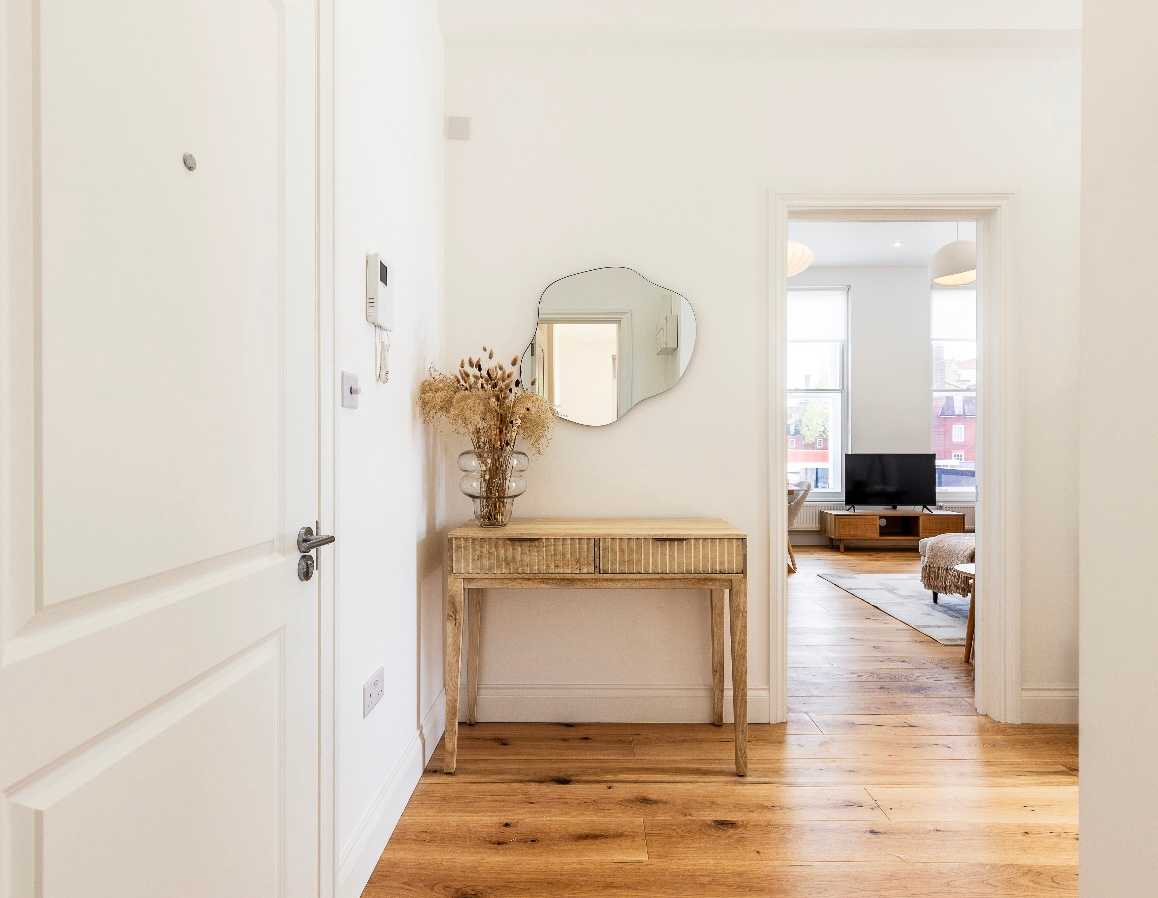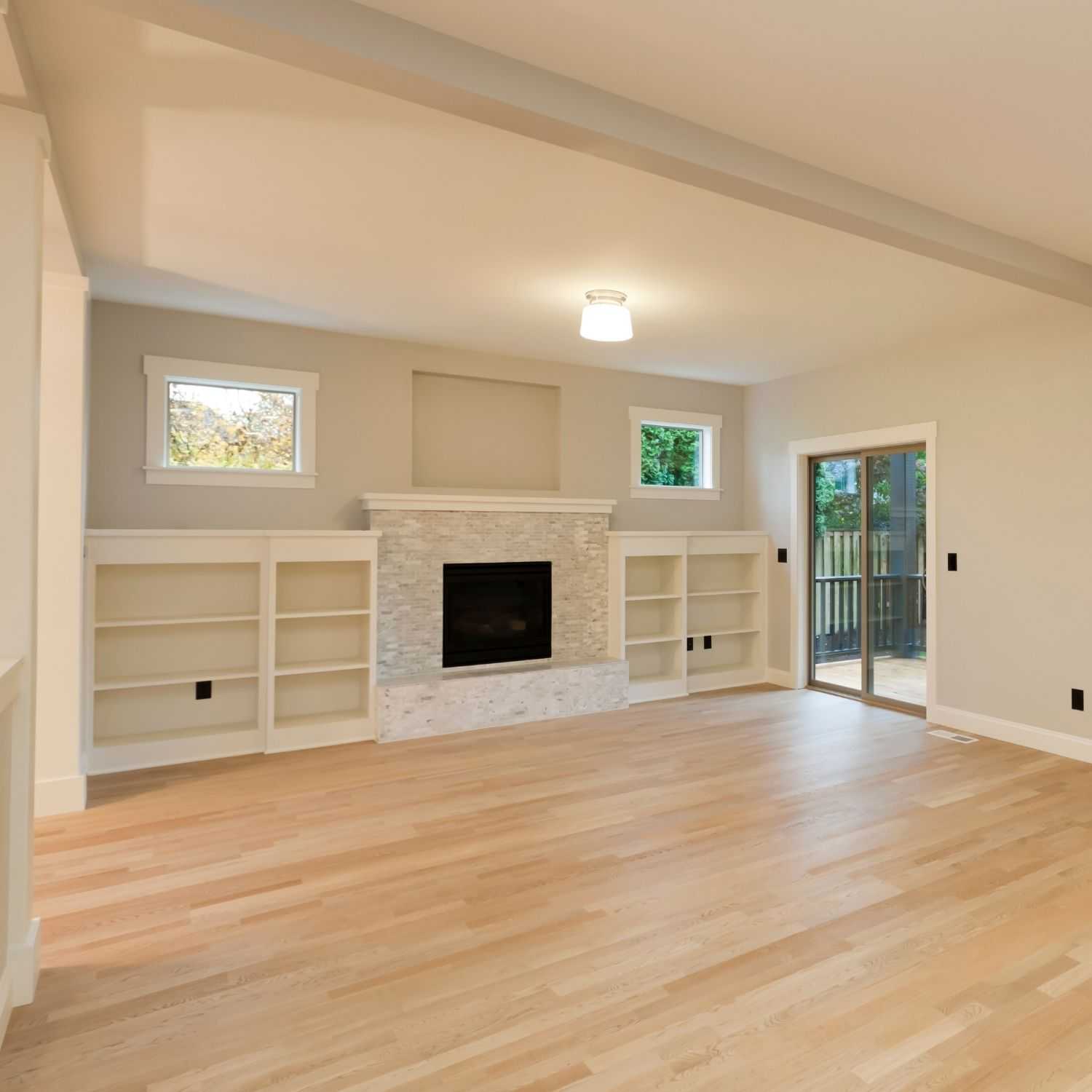Share
If you’re a first-time landlord in London, you’ve got a golden opportunity to build wealth. Buying real estate is a form of investment. Real estate assets appreciate over time and it reflects as capital gains on your portfolio. But apart from that, you can maximise the return on that investment by letting out your house in London.
The option to let out your house can boost your monthly cash flow to either supplement your other income sources or save up so you can grow your portfolio.
In this article, you’ll learn how to be a landlord and the key reasons why you should consider letting out your flat. You’ll learn the 5 steps that you can follow to make it happen. You’ll also get important insights to help you set up your house for rent successfully.
Reasons to Let Out Your Flat in London
In July 2023, the demand for rental properties in the UK went up by 54%. Between 2016 to 2018, 2 out of 10 households rented their home from a private landlord in England. This is equivalent to 4.6 million households. In London alone, there were approximately 2.7 million renters of private properties in 2021.
What do all these figures tell you? It shows just how vibrant the real estate market is in the UK – specifically in London. So if you have a home in this city, you have the golden opportunity to be a landlord and to let out your house for extra profit.
Here are 4 specific reasons why you should consider letting out your property in London.
If you want to sell but nobody’s buying
If you’re trying to sell your asset but you’re only getting low-ball offers or none at all, don’t feel frustrated. It might be better to be a landlord first and rent your house now and sell it later.
Don’t force yourself to accept offers that’ll put your portfolio at a loss. The dynamic nature of the housing market means you’ll get your chance to sell your real estate asset at a good price. You just have to wait for the right timing and market conditions first.
While you wait, it’s better to let out your house so you can keep your investment active while you wait for the best offer to sell.
If you need to relocate temporarily
Another reason to consider letting out your house is when you need to relocate temporarily. Some professionals are required to travel to different places for extended periods. If that’s part of your job, you don’t have to leave your home unattended for long. Rent it out in the meantime.
For instance, you need to relocate for a year to a satellite office overseas. Instead of leaving the house empty during that period, why not get in touch with a letting agent or property management company like City Relay and get them to short-let your home to guests? Allow other people to stay in it and earn income from the rent.
Not only will this give you extra income to help pay the buy-to-let mortgage, but you can be sure that the house will be regularly cleaned and maintained while you’re gone. It won’t have the chance to fall into disrepair.
If you’re trying to grow your portfolio
In case you’re trying to achieve growth for your portfolio, letting out your property is a great way to do it. The money you earn from the rent income stream can be saved to fund another investment.
Or you can use it to renovate a house to increase its value, thereby increasing the value of your portfolio as well.
Being a landlord means having an extra source of passive income. It’s a great way to secure your finances and it gives you the confidence to take investment risks that can increase returns that will bring growth to your portfolio.
If you decided to monetise an inheritance or gift
Inheriting a house or receiving it as a gift provides an excellent opportunity to reach your financial goals by becoming a landlord. If you don’t plan on living in the house, why not let out your flat so you can earn a steady rent income from it?
Letting out your property won’t just give you extra income. It’ll also preserve the structure. If you opt for a long-term letting strategy, the tenants will take care of the unit’s upkeep while they’re living in it. In case you decide on a short-term letting strategy, the house for rent will require regular cleaning in between stays.
Before You Let Out Your House…
If you tick any of the reasons mentioned, you have this incredible opportunity to earn extra rent income every month. But before you start, there are 3 important things that you need to do.
Do your research
If you’re new in the rental market, do your research. Find out how the private letting market works – specifically in your unit’s area. Among the things you need to know are the average prices to rent, housing demands, taxes, insurance, tenant or guest preferences, etc. If you know of anyone who owns a unit for rent, ask them about their experience.
You can also browse letting agents or property management websites like City Relay. Get to know how they operate and how landlords navigate the real estate market.
Know the legal responsibilities
One of the important aspects of properties for rent is compliance. Just because you own a house, that doesn’t mean you can have it rented immediately. There’s a process that you need to go through and several compliance checks to meet.
Electrical safety, sustainability, safety and security, gas safety and other structural standards will have to be met. You’ll be required to show proof that you passed these safety checks before you’re allowed to let out your house.
You should also familiarise yourself with the financial responsibilities of landlords. Since you’re earning rent income, you need to pay taxes. You also have to arrange for insurance, deposit protection, etc.
Determine your property management strategy
Once you have all the details mentioned, it’s time to decide how you’ll manage properties for rent. Will you be a hands-on landlord when you let out your house? If you have the time to market the home for rent, clean and maintain it regularly, collect rent and handle tenant/guest relations, then you can manage properties on your own. As long as you can also monitor the housing market movement, track changes in guest preferences and stay updated with rental laws and regulations, you should be able to handle it on your own.
However, if you know that you’ll end up confused because of the multiple responsibilities of a landlord, you have the option to hire a letting agent or property management company. There are companies like City Relay that offer end-to-end letting services. You can rely on their expertise and experience to increase occupancy rates and maximise the earning potential of your flat.
5-Steps to Letting Out Your Property
Once you’ve gone through the research, legal responsibilities and property management strategy, it’s time to lay out the groundwork so you can get the house ready for occupancy. Here are the 5 steps to guide you.
Step 1: Prepare your house for letting
Take a look at your flat and see how you can make it completely compliant with letting rules and regulations. Take note of renovations and aesthetic upgrades that you need to do. Sometimes, a simple paint job can do wonders for the house to make it visually appealing. You should also hire a professional cleaner to do a deep clean.
If the house isn’t sustainable yet, you need to slowly increase its EPC (energy performance certificate) rating. List the energy-efficient appliances and smart technology devices that you can install. This will help the house attract eco-conscious residents and guests.
Step 2: Calculate the right rental price
Compare the house with similar units for rent in the area. This will help you calculate a competitive rental price when you let out your flat. But that’s not how it ends. You still need to take into consideration the market, your expected return on investment (ROI) and management expenses (e.g. taxes, insurance, mortgage payment, etc) before you can finalise your calculations.
As a landlord, it’s up to you to choose a competitive price before letting out your property. The right price can help you attract prospective tenants and guests.
Step 3: Create advertising and marketing strategies
Take high-quality photos of your properties for rent so you can use them as your marketing material. If you can, create a virtual tour as well. This will make it easier for potential guests to check out the amenities that you offer. Don’t forget to include a description of the house and highlight special features like energy-efficient appliances, balconies, etc.
Choose a platform that your target market frequents. Among your options include Airbnb, Zoopla, Rightmove, VRBO, etc. If you partner with property management companies like City Relay, they will also feature your house on their website as part of their service. The photos and virtual tours of the units for rent will be used as marketing tools on these platforms.
You can also advertise your flat on social media platforms for added mileage. The wider the circulation, the more chances of attracting residents and guests.
Step 4: Set up a tenant vetting process
As you’re setting up the marketing plan for your house for rent, start creating a tenant vetting process as well. This involves establishing criteria like previous landlord references, minimum credit score, proof of employment, etc.
This is a necessary step to help you find reliable and responsible residents. This will protect you from problematic residents who might give you a hard time when it comes to rent collection.
Step 5: Define the flow of property management operations
If you plan on being a hands-on landlord, you need to set up a flow of operations. This will ensure that you won’t miss maintenance checks like electrical, plumbing, boilers/heater inspections, etc.
You also need to set up a communication channel so you won’t miss tenant/guest concerns or new inquiries. Using a platform to monitor booking schedules can make this task easier to handle.
Other processes that you need to set up before you let out your flat include rent collection, emergency responses, etc. You want to ensure that if a problem arises, you have the means to solve it quickly and efficiently. For short-term rentals, you also need to establish a convenient process for check-ins and check-outs.
Why Work with a Reputable Property Management Company?
Part of a successful letting strategy is the management and operations. As a landlord, it’s up to you to decide how to manage your house. If it takes up too much of your time and effort, you don’t have to deal with the stress that comes with managing properties. You can work with a reputable property management company when you let out your house.
You’ll enjoy professional management services that include marketing your house to find the right residents and guests to occupy it. Thanks to their experience and expertise, they’ll know the right platforms to use that’ll benefit landlords like you. They can help you prepare high-quality photos and virtual tours to encourage potential residents and guests to choose the unit for rent. They’ll deal with inquiries about the house and even the scheduled viewings.
Property management companies that can monitor and take care of the maintenance and repairs of the house. They have access to reliable contractors and service providers. They’ll make sure the unit’s value is maintained over time.
Legal compliance is also another thing that property management companies can help with. They can keep your flat updated with local regulations. If you want to make the home sustainable, they can help you with that as well. As a landlord, you can rely on their expertise when it comes to pricing strategies, safety regulations, tenant agreements, etc.
Common Questions About Letting Out Your House
Here are the common questions that landlord asks before letting their houses.
What are the steps to renting out a house in London?
Before you let out your house, you need to obtain a landlord’s license. The requirements will vary depending on the local council. They’ll ensure that the properties for rent in the area are managed responsibly.
Your unit should also meet certain standards imposed by the letting laws in London. This includes meeting safety checks for electrical, water, gas, heating, etc. There’s also a requirement in London that properties for rent should meet a minimum Energy Performance Certificate (EPC) rating.
Once the house is completely compliant, you can start marketing it as a unit for rent. Set up a process that starts with the marketing, vetting of residents, checking in and out of guests, collecting rent, etc.
How can I find a reliable tenant for my London home?
A landlord requires an effective vetting process to find reliable tenants and guests. This vetting process includes getting references from previous landlords, background and credit checks, employment verification, etc. Being thorough would ensure that you won’t be left with a difficult tenant.
You should also be upfront with the rules and regulations of the unit for rent. Be firm with the implementation so residents and guests won’t end up damaging the house by accident.
What kind of rent agreement should I use when renting out my London home?
There are different types of rent agreements. Short-term letting applies to rent periods of 3 months or less. It provides peak earning potential for units for rent but the law states that you can only short-let properties for 90 days a year. Mid-term letting is for a rent period between 3 to 6 months – there’s no limit for this letting strategy but it doesn’t provide the high income potential of short-lets. Long-term letting is for rent periods that go beyond 6 months and it provides a stable source of income.
Choose the rent agreement that would fit your portfolio goals.
Get Access to Property Management Expertise
Letting your house provides a wide variety of benefits that mostly reflect on your portfolio. With the right letting strategy, you can build your wealth significantly and improve your monthly cash flow.
As you let out your house, it’s important to understand how to properly manage it. Consider partnering with a reputable property management company. You can benefit from their experience and expertise. They’ll help you maximise your rent income and minimise the stress that comes with managing houses for rent.
If you wish to know more about how you can let out your flat in London, reach out to City Relay. You’ll get efficient end-to-end property management services that lead to high occupancy rates and maximum rent income without too much stress.













